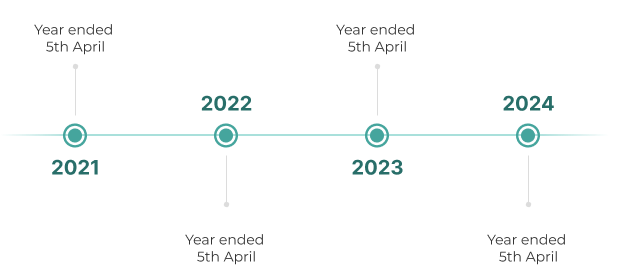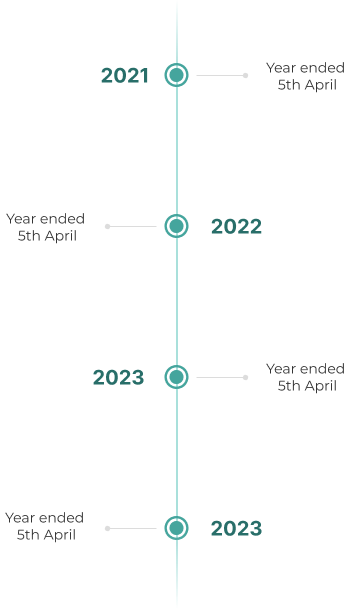What is BR Tax?
Lorem ipsum dolor sit amet, consectetur adipiscing elit. Ut elit tellus, luctus nec ullamcorper mattis, pulvinar dapibus leo. Lorem ipsum dolor sit amet, consectetur adipiscing elit. Ut elit tellus, luctus nec ullamcorper mattis, pulvinar dapibus leo.

Basic rate tax
Employees based in the UK are paid under PAYE (pay as you earn scheme). They are also given a unique tax reference number. Your UTR determines how much income tax you will pay on your salary. All taxpayers get a personal allowance which is tax-free every financial tax year. If you are on the BR tax, you will pay 20% of your income.
Higher tax rate
If you pay your tax at a higher rate but have a basic rate tax code, you may be underpaying. It can happen if you only pay a proportion of your salary at the higher tax rate, but a BR code has been used for the entire sum. If you need to check your tax code, get in touch with us a Swift Refunds. Years can elapse before this can be picked up and could result in a large sum still being owed to HMRC.
What are the letters in tax codes?
The letters in your tax code refer to your individual tax situation and your personal allowance.
- L – You are entitled to the standard tax-free allowance
- M – Marriage allowance – You have received 10% of your partner’s personal allowance
- N – Marriage allowance – You have transferred 10% of your personal allowance to your partner
- S – Income or pension is taxed using Scotlands rates
- T – Personal allowance reduced because income is more than £100,000
- 0T – Your personal allowance is used up
- BR – You are taxed at the basic rate
- D0 – Income & pension taxed at a higher rate (usually if you have more than 1 job)
- D1 – Income & pension taxed at an additional rate (usually if you have more than 1 job)
- NT – You are not paying tax on your own income
- S0T – New employer does not have the details needed to give you a tax code
- SBR – Income & pension taxed using Scotlands rates
- SD0 – Income & pension taxed using Scotlands intermediate rate
- SD1 – Income & pension taxed using Scotlands higher rate
- SD2 – Income & pension taxed using Scotlands top rate
- CBR – income or pension is taxed using Wales’ rates
- CD0 – Income & pension taxed using Wales’ higher rate
- CD1 – Income & pension taxed using Wales’ additional rate if you have more than one job
- C0T – Your personal allowance has been used up or you have started a new job but a new employer does not have details for a tax code
If you have ‘W1’ or ‘M1’ tax code then you will be paying emergency tax. If you have a tax code with a ‘K’ at the beginning, it means you are not being taxed that income. The tax code 1250L is used if you have one or more jobs or pensions.
Submit Your Claim
Do you work in lots of different locations to do your job and think you may be due a tax rebate? Well, find out whether you’re entitled to make a Tax claim by answering a few simple Tax-related questions below.
How Far Back Can I Claim?
Current legislation in the UK says you can go back up to four Tax years when claiming a Tax rebate. This means at the current moment in time you can make a claim for the following periods:
- Year ended 5th April 2021
- Year ended 5th April 2022
- Year ended 5th April 2023
- Year ended 5th April 2024
Effectively this means you can claim Tax relief from 6th April 2020.
Over such a long period of time wage slips and p60s can be lost or misplaced. This isn’t a problem as you have lots of ways to obtain this information.


What Can I Claim Tax Back On?
You can claim tax back on most work-related expenses. Below is a list of items that you can request a tax rebate on:
- Vehicles for work use
- Fuel/Mileage costs
- Travel expenses
- Overnight expenses (food in certain circumstances)
- Rail Tickets (single & season tickets)
- Uniforms, work clothing and tools
- Cleaning costs for uniforms
- Professional fees, subscriptions & unions fees
This list is an example of what you could claim back; there may be expenses & items specific to the job role that you could claim back.
Customer Stories
Civil engineer Dean claimed back over £520
Hi, my name is Dean and I work as a civil engineer. Richard contacted me via Linkedin regarding a tax return that I might be owed he took me through step by step and was always at the end of the phone to get me my return. Now I’m £520 better off thanks to Rich, great work Swift Refunds!
Dean, Civil Engineer
Plant Operator Scott claimed back over £2,000
Hi there, my names Scott I’ve been using Swift for the last 2 years, I’ve just got over £2,000, all you need to do is fill out the easy forms and Swift do the rest it’s really that simple.
Scott, Plant Operator
Am I Due Any Tax Back?
Most workers, whether employed or self-employed may be due a tax rebate for work-related items, expenses or because they have paid too much tax. HMRC do not know everyone’s individual circumstances, and it is up to the taxpayer to contact HMRC to see if they are entitled to any tax relief.
Other reasons for a tax refund may include pension payments, redundancy payments, interest from a savings account, PPI, or UK income if you are living aboard.
All claims for tax refunds and rebates are reviewed on a case by case basis. Use our tax claim form and answer a few simple questions to see if you could be entitled to make a claim.






